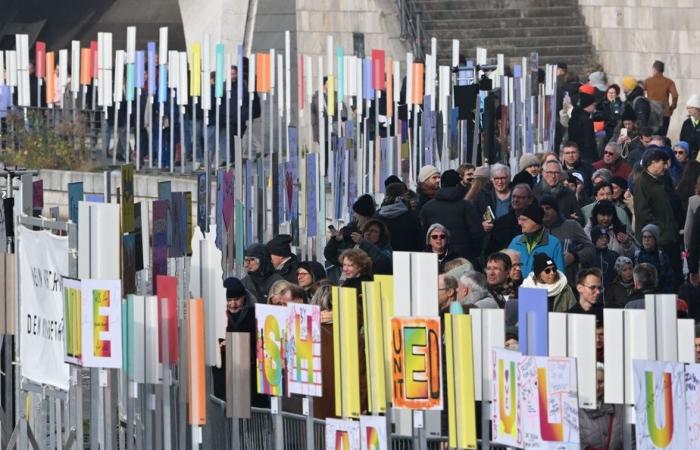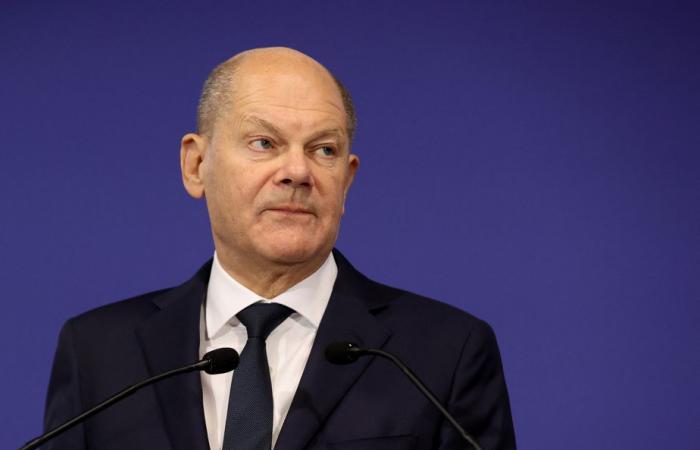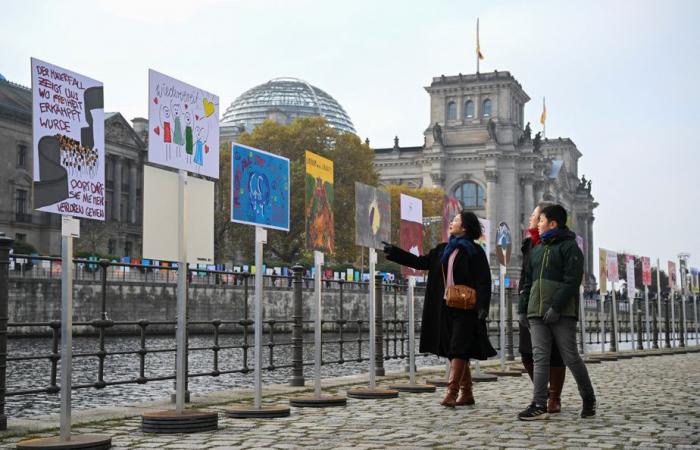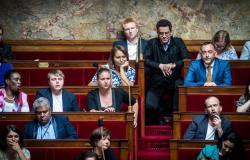(Berlin) Germany celebrates the fall of the Berlin Wall on Saturday, which fell 35 years ago, on a “happy day” which contrasts with the somber atmosphere of the moment, linked to the government crisis in the country and the decline of democracies in the world.
Posted at 10:26 a.m.
Isabelle LE PAGE
Agence France-Presse
The festivities which take place until Sunday do not, however, lose sight of the symbolism of this historic event, which occurred on November 9, 1989.
It was “a happy day” which also reminds us that “freedom and democracy have never been taken for granted,” declared Berlin Mayor Kai Wegner during a ceremony attended by the head of state. Frank-Walter Steinmeier.
The slogan of the festivities, “Preserve freedom”, finds particular resonance at a time when democracy is in decline around the world and where wars continue to rage, in Ukraine and Gaza.
They also come at a time when Olaf Scholz’s coalition was shattered, after the dismissal of the liberal Finance Minister on Wednesday evening, plunging Europe’s largest economy into a period of uncertainty.
PHOTO BERNADETT SZABO, REUTERS
German Chancellor Olaf Scholz
Former West Berliner Jutta Krüger, 75, certainly finds it “a shame” that the government crisis is occurring now, but “we must still celebrate the fall of the wall”.
“It was particularly important for Berliners, but also for those who lived in East Germany, to know that they could go out if they wanted,” this retiree told AFP.
Bernhard Hödtke, 93, who lived in the east, remembers venturing to the other side the next day with his colleague, just as incredulous as he: “we went down Friedrichstrasse”, a central artery formerly cut by the wall, and “we pinched our arm,” he says.
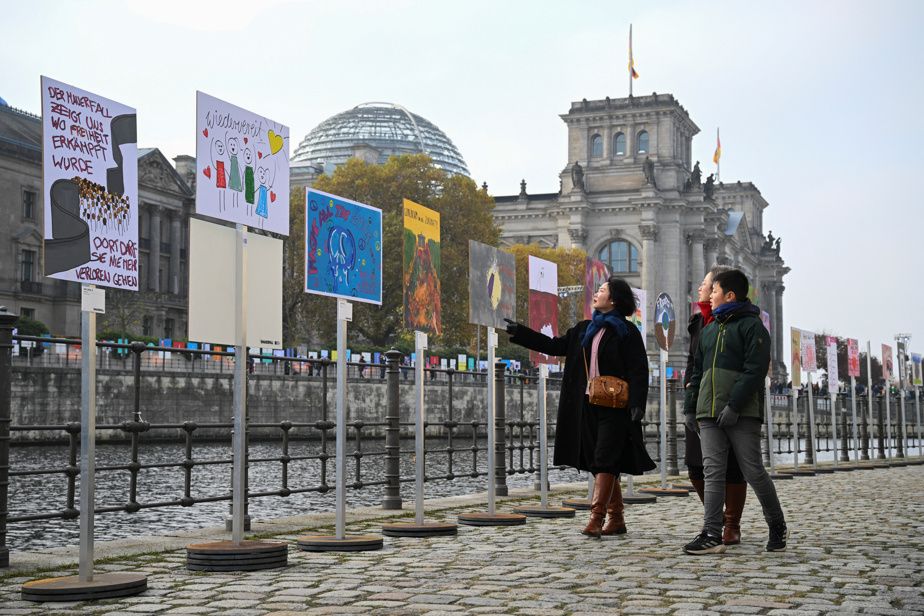
PHOTO ANNEGRET GREETINGS, REUTERS
Illustrations are displayed where the Berlin Wall enclosed the section of the city.
Ideals of 1989
Olaf Scholz stressed on Friday that the values of 1989 could not “be taken for granted”.
To embody these ideals, an outdoor installation that stretches 4 km along the former route of the wall displays replicas of signs from the 1989 protests and thousands of others created by citizens.
The end of the “Wall of Shame”, a symbol of the Cold War and the division between the Western and Soviet blocs, paved the way for the collapse of communism in Eastern Europe and the reunification of Germany a year later.
It was erected in August 1961 over 155 km around West Berlin in order to put an end to the exodus of inhabitants from the German Democratic Republic (GDR).
At least 140 people died trying to cross it.
Activists from around the world were invited to Berlin this weekend, including exiled Belarusian opposition leader Svetlana Tikhanovskaya and Iranian dissident Masih Alinejad.
Russian protest punk band Pussy Riot will perform in front of the former headquarters of the Stasi, East Germany’s feared secret police.
“We stand alongside those who fight today for their freedom and against enslavement! », declared Frank-Walter Steinmeier.
“Rise of populism”
The emphasis on freedom is particularly important “at a time when we are faced with the rise of populism, disinformation and social division”, judged Joe Chialo, responsible for Culture at the Berlin regional government.
The elections held in September in three regions of the former GDR, where the far-right party achieved historically high scores, highlighted the persistent political divisions between the east and west of the country.
This weekend also marks the anniversary of “Kristallnacht”, a pogrom perpetrated by the Nazis on November 9 and 10, 1938. At least 90 Jews were murdered and 1,400 synagogues burned in Germany and Austria.
The commemoration comes against a backdrop of a resurgence of anti-Semitic acts in Germany since the events of October 7, 2023 – the unprecedented attack by Hamas against Israel – which triggered the war in the Gaza Strip.
The fact that “Jews today still have to be afraid to live their religion openly is a shame,” Olaf Scholz said on his X account on Saturday.

